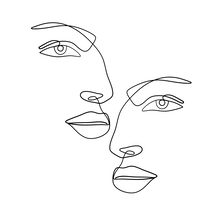Data | Women & Money
|
As a strong advocate for financial literacy, I am deeply troubled by the financial obstacles that women encounter.
The statistics paint a picture of ‘less’: on average, women have longer lifespans, lower earnings, reduced investment, fewer assets, diminished business funding, and less confidence in their financial abilities. They also carry more debt and experience greater stress. That’s why I am dedicated to enhancing women’s financial proficiency and empowering them to take charge of their financial future. |
Pay Gap
- UK | Gender pay gap: women are paid 90p for £1 earned by men. [source]
- US | In 2020, women earned 83 cents to every dollar earned by men. [source]
Ethnicity
- UK |Black women, regardless of whether they are UK born, have the lowest probabilities of being top earners. While 1.3% of UK-born White men are in the top 1%, it is only 0.2% of UK-born White women and less than 0.1% of UK-born Black women. [source]
- UK | White and Black Caribbean women are the lowest female earners, earning as little as 70p for every £1 earned by the average White British man. [source]
Lifetime Earnings Gap
- US |Females are said to reach their financial peak earning power at the age of 44, with an average salary of $66,700 (around £50,900). In comparison to their male counterparts, who commonly reach their peak earning power at age 55, with an average salary of $101,200 (approximately £88,400). [source]
Investment Gap
- UK | A THIRD more men invest than women. women are more likely to save, and men to invest...because they’re focused on cash, men stand a better chance of beating inflation over the long term. [source]
- UK | Four-in-five women (81%) say lack of trust in investment providers stops them from investing. 60% of women believe risk can lead to potential or even certain loss, which in turn affects where they feel confident saving money. [source]
- US | 70% of US women have never met with a financial advisor compared to 41% of men. [source]
- US | The net worth of the average single woman is three time less than the average single man. [source]
Ethnicity
- US | Nearly 60 percent of Black women are not invested in anything ... this creates a problem not just for the current generation, but subsequent ones as well. [source]
Debt Gap
- UK | Women own 25% more debt that men. [source]
Ethnicity
- UK | The percentage of households with financial debts that exceed their financial assets was highest for the Black African and Other Asian groups (both 44%) and was twice as likely for these households compared with the White British group. [source]
Pension Gap
- UK |For many women the reality is that by age 65 they will have saved £69,000 into their pension. The average man would’ve accumulated £205,800. This means on average women will retire with roughly one-third of the pension pot of men. [source]
- UK | Women aged 25 taking a 5 year career break will accumulate a pension pot 33% smaller than their male counterparts. [source]
- UK | 60% of women say they don’t have a [pension] plan, compared with 44% of men. [source]
Divorce
- UK | The median pension wealth of divorced men and women by retirement is £103,500 and £26,100. [source]
Ethnicity
- UK | Black older households receive £47 a week from occupational pensions compared to £169 for White older households.
- 50% of older Black people aged 65+ were homeowners in 2018, compared to 80% of White people aged 65+.
- This means that, on average, they have lower levels of wealth than White older people and must pay rent throughout retirement. [source]
Well-being Gap
- UK | 61% of women cite their finances as their greatest source of stress, compared to 52% of men. Further, almost half (46%) of women claim to lose sleep because of financial stresses; 40% of men claim to experience this. [source]
- US | 59% of women surveyed report worrying about their finances at least once a week, and a whopping 43% of women actively worry about money at least once a day. [source]
Menopause & Money
- UK | 25% of women considered leaving a job because of menopausal symptoms while half said it hindered their working life...Menopausal symptoms impacting work might also be a contributing factor in the gender pay gap and subsequently the gender pension gap. [source]
Business Funding Gap







